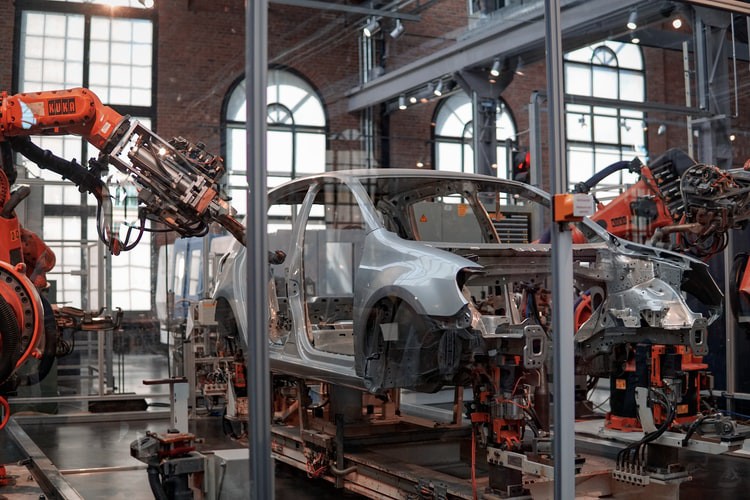Industry Robots: How Robotics Are Used Across Different Industries

Industrial robots are transforming the workforce. Robotics is currently used across a wide range of industries, from the healthcare sector to electronics. The demand for robotics is continuing to grow as business owners look for innovative ways to improve efficiency. Here are six key industries that are using robotics:
Healthcare
The use of robotics in the healthcare industry can be beneficial for doctors, nurses, and surgeons. However, robotics isn’t treated as a replacement for health professionals. They are ultimately used to make jobs easier for health professionals. Robotics can be programmed to perform an array of tedious tasks, allowing workers to focus on more stimulating tasks. They can sanitise working conditions, deliver drugs and provide assistance during medical procedures.
Pharmaceuticals
Pharmaceutical companies are becoming more dependent on robotics for the production of medicines. Robotics can be used to automate basic pharmaceutical tasks. This allows professionals to focus on more important matters, like drug research and development. Some robotics can also be programmed to perform tests on counterfeit or fraudulent medications. This helps to create better and safer results in healthcare.
Automotive Applications
The application of industrial robots is most prominent in the automotive industry. They are commonly used in the process of car assembly, arc welding, material removal, spot welding and painting and coating. Because these tasks can be hazardous to humans, industrial robots are highly utilised in this field. The use of robotics can help to reduce the risk of human accidents, injuries and exposure to toxic fumes.
Electronics and Technology
The use of robotics has revolutionised the electronics and technology industry. Robotics play an important role in assembly work, and the inspection and testing process. Robotics can perform these tasks with unparalleled precision, which allows for a high level of consistency. They can also package and dispense items more quickly than humans, which speeds up the entire production process. This means larger quantities of electronics and computers can be produced in less time.
It’s important that all technology-related businesses invest in cyber insurance. When businesses use advanced technology and robotics, it puts them at a higher risk of cyber attacks. Cyber insurance can protect businesses from losses related to hacking, viruses, and data theft. A speedy internet connection is also necessary for any company that automates business processes.
The Food Industry
Industrial robots have also had a major impact on food and beverage production. Robotics is particularly useful when it comes to packaging food items. Sorting and packaging food is a repetitive job that requires great consistency, accuracy, and precision. Using robotics for these tasks helps save time and allows workers to focus on other jobs. Some advanced robotics can even be used to assist with meal and cooking preparation.
Retail
In the retail industry, robotics are commonly used to speed up the packaging and assembly process. But many retail stores are also starting to use robotics to assist with day-to-day tasks like stock taking. Some robotics can monitor inconsistencies in shelving and perform inventory checks. This not only makes employees’ jobs much easier to manage but also has a positive impact on customer experience. It’s important for retail stores to maintain a high level of efficiency and consistency, as it has a direct impact on customer satisfaction.
Conclusion
Industrial robots are commonly used to perform tasks that are too dangerous, tedious or time-consuming for humans to carry out. They have been a lifesaver for many business owners who need to save time and increase efficiency. It is likely we will continue to see more industries using robotics in new and innovative ways.
About
Harper Reid enjoys reading, learning and about a diverse range of topics - from business and technology to sustainable living. Check out more of Harper’s works on her blog.
Resources: https://www.wired.com/story/tug-the-busy-little-robot-nurse-will-see-you-now/
https://www.startus-insights.com/innovators-guide/5-top-robotics-startups-impacting-the-packaging-industry/
https://www.automationworld.com/factory/robotics/blog/13318590/the-newest-robotics-in-car-manufacturing
Thanks for helping to keep our community civil!
This post is an advertisement, or vandalism. It is not useful or relevant to the current topic.
You flagged this as spam. Undo flag.Flag Post


